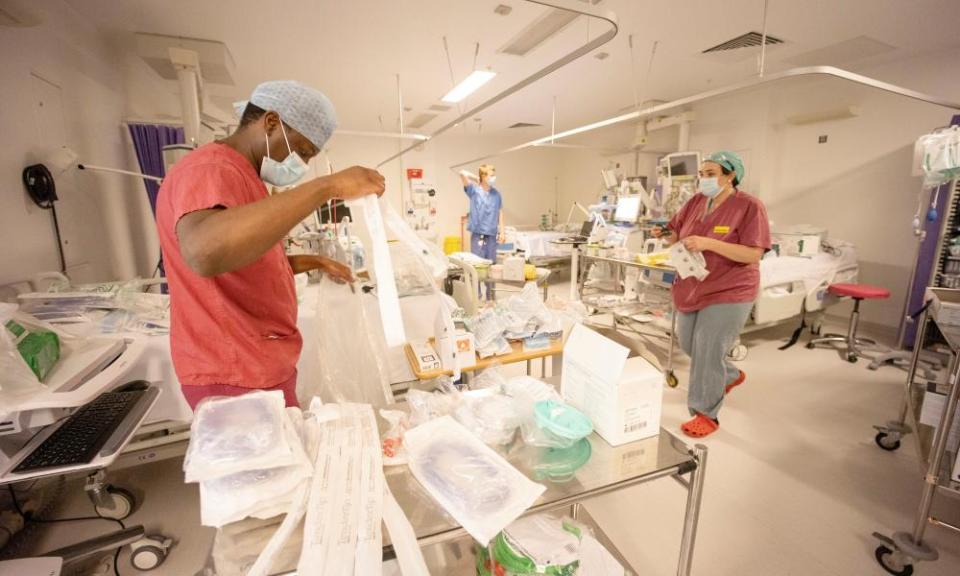NHS forecasts 230,000 extra cases of PTSD in England due to Covid

The NHS is forecasting there will be 230,000 new cases of post-traumatic stress disorder in England as a result of the coronavirus pandemic, official figures show.
Covid-19 has increased exposure to events that could cause PTSD, an anxiety disorder triggered by very stressful, frightening or distressing events, according to the Royal College of Psychiatrists. It says the NHS is already facing the biggest backlog of those waiting for mental health help in its history.
Forecasts cited by the college from the NHS strategy unit, which carries out NHS analysis, show there could be as many as 230,000 new PTSD referrals between 2020/21 and 2022/23 in England, which suggests a rise of about 77,000 cases a year on average.
The NHS strategy unit said it was not possible to directly compare the modelling of new cases to current figures since the NHS does not publish a total figure for all PTSD referrals in England. However, analysis suggests the number of new cases predicted would represent a significant increase.
The strategy unit said its forecast of the rise in cases was based on the effects of the pandemic on domestic abuse victims, children and young people, relatives of Covid survivors, health and care workers, and those who have lost friends and family to the disease.
People affected can experience intense negative emotions, thoughts and memories, experts said.
Prof Neil Greenberg, expert editor of the Royal College of Psychiatrists’ new resource tool for patients with PTSD, said: “It’s a common misunderstanding that only people in the armed forces can develop PTSD – anyone exposed to a traumatic event is at risk.
“It’s vital that anyone exposed to traumatic events is properly supported at work and home. Early and effective support can reduce the likelihood of PTSD and those affected should be able to access evidence-based treatment in a timely manner. Especially our NHS staff who are at increased risk as a result of this unprecedented crisis.”
The college highlighted a poll of 709 intensive care staff across six NHS hospitals in England during the first wave of the pandemic that found two in five reported symptoms of PTSD – more than twice the rate found in military veterans with recent combat experience.
Related: Case study: Covid-19 UK survivor recalls her all too real 'nightmare'
It also pointed to research published in the journal BJPsych Open earlier this year, which found that 35% of Covid-19 patients who were put on a ventilator go on to experience extensive symptoms of PTSD.
One patient, Dee, a 52-year-old from Bristol, who became severely ill with Covid-19 last year, said: “I experienced severe anxiety about my breathing problems. This included intrusive visions of not being able to breathe and of NHS staff in PPE suits taking me to hospital.
“My sleep was badly affected and I started using alcohol as a coping mechanism. I have since tested positive for Covid-19 a second time, which has been extremely traumatising. I’m struggling but I’m not confident that I can get the help I need.”

 Yahoo Finance
Yahoo Finance 